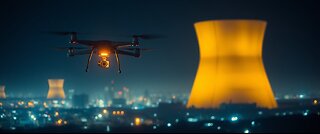Premium Only Content

Extraterrestrial Pregnancy: The Ultimate Adventure or Ultimate Risk?
In a groundbreaking venture that challenges conventional wisdom, SpaceLife Origin, a biotech company, is spearheading a bold mission: to enable the birth of the first (technically) extraterrestrial child. Departing from traditional maternal norms, they propose sending a pregnant woman into the exosphere to give birth, heralding a new era in human reproduction.
Founded on the premise of humanity's imminent colonization of other planets and Earth's escalating environmental perils, SpaceLife Origin envisions a future where space births become commonplace. Their visionary agenda comprises a series of meticulously planned missions, culminating in the historic birth of a child beyond Earth's confines by 2024.
The ambitious endeavor commences with Mission Ark, slated for 2020, offering individuals the chance to safeguard their genetic legacy by storing their "Seeds-of-Life" in a satellite orbiting Earth. This pioneering initiative assures a secure repository for future generations, shielded from terrestrial catastrophes.
Following suit, Mission Lotus, scheduled for 2021, embarks on a revolutionary attempt to conceive a human in space. Utilizing human egg and sperm cells launched to a space station, scientists aim to artificially create an embryo, laying the groundwork for extraterrestrial gestation.
Ultimately, Mission Cradle aims to realize the historic birth of a human being in space, marking the advent of humanity's first "extraterrestrial" baby. However, logistical challenges abound, raising questions about the safety and feasibility of such a feat.
Dr. Egbert Edelbroek, SpaceLife Origin's Chief Strategy & Innovation Officer, encapsulates the profound significance of this endeavor, stating, "It's a small step for a baby, but a giant baby-step for mankind." Yet, amid aspirations of interplanetary colonization, uncertainties linger regarding funding, partnerships, and ethical implications.
As SpaceLife Origin navigates uncharted territory, garnering support from entities like the tentative space nation Asgardia, profound questions emerge about the societal implications and inclusivity of such ventures. Despite the allure of space exploration, the quest for cosmic advancement prompts reflection on its broader societal impact and ethical considerations.
-
 1:56
1:56
Conspiracy Chronicle
9 months agoMysterious Drones Over New Jersey: Are They Hunting for Nuclear Radiation?
2234 -
 1:09:16
1:09:16
Man in America
14 hours agomRNA 2.0: This Frightening Tech Can Target Your BRAIN Using Biological Post Codes
29.3K5 -
 1:28:31
1:28:31
The Charlie Kirk Show
4 hours agoTHOUGHTCRIME Ep. 100 — Turning Point Halftime? Potatoes and Katie Porter? Hasan the Dog Shocker?
77.8K27 -
 LIVE
LIVE
SpartakusLIVE
5 hours agoNEW Update, NEW Meta || Zombies Mode is BACK - Smokes NURFED
472 watching -
 13:10
13:10
Robbi On The Record
4 hours ago $0.05 earnedThe War on Christians | China’s Surveillance & Nigeria’s Killing Fields
24.9K23 -
 1:24:49
1:24:49
Flyover Conservatives
23 hours agoYour Home Just Became a Healing Room — The Truth About Red Light & Med Bed - Jonathan Otto | FOC Show
25.5K4 -
 2:11:35
2:11:35
Mally_Mouse
4 days ago🎮 Throwback Thursday! Let's Play: Kingdom Hearts 1 pt. 2
21.6K2 -
 3:00:37
3:00:37
Barry Cunningham
7 hours agoBREAKING NEWS: LETITIA JAMES INDICTED FOR MORTGAGE FRAUD!!! LIBTARD TEARS ARE FLOWING!
53.4K27 -
 1:17:42
1:17:42
Glenn Greenwald
7 hours agoUS/Venezuela Escalations: Revisiting Key Developments and the Push for Regime Change | SYSTEM UPDATE SPECIAL
111K146 -
 3:13:40
3:13:40
ProvenTactics
4 hours agoFPS Shooter Games
15K2